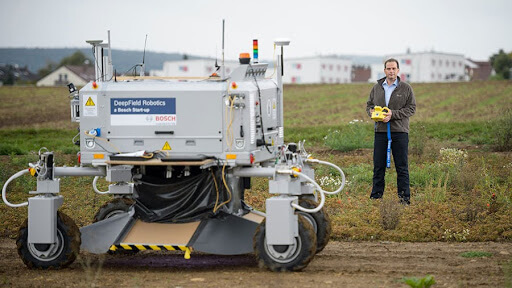 1-800-805-5783
1-800-805-5783 
In an era where every efficiency gain counts, a new class of artificial intelligence is emerging to transform how work gets done. Agentic AI refers to AI systems endowed with agency – the ability to make autonomous decisions, adapt to changes, and act proactively without needing step-by-step human instruction.
Unlike traditional automation that rigidly follows preset rules, agentic AI embodies autonomy and context-awareness. These intelligent agents can understand their environment, set goals, and execute complex tasks with minimal oversight. This shift is more than a technical nuance; it’s a breakthrough in how businesses can achieve productivity.
Agentic AI is gaining momentum now thanks to advances like powerful large language models and reinforcement learning. These enable AI “agents” that don’t just analyze data but take action on it. Investors and enterprises have taken notice.
It’s important to understand the difference between agentic AI and traditional AI and automation that many companies already know. Traditional automation (like classic workflow software or RPA bots) follows predefined scripts and rules to perform repetitive tasks. If conditions change or a new scenario arises, human intervention is usually needed to update the rules.
On the other hand, predictive AI models can analyze data and forecast outcomes, but they typically act as decision support; a human still makes the final call or initiates an action. Agentic AI breaks out of these confines. Its key differentiators include:
In summary, agentic AI combines the strengths of advanced analytics with the independence of an autonomous agent. It’s a move from “tell me and I’ll do it” to “I understand the goal – let me figure out how to achieve it.” This fundamental difference is why agentic AI is poised to redefine efficiency in so many domains.
One of the best ways to grasp the impact of agentic AI is to see it in action across different industries. Because these AI agents can be tailored to various environments, virtually every sector stands to benefit. Here are some agentic AI use cases and examples in key industries:
Healthcare: Hospitals and healthcare providers use agentic AI to improve their operations and patient outcomes. AI agents can automate labor-intensive administrative tasks—for example, extracting information from clinical documents and drafting medical reports—so doctors and nurses spend less time on paperwork. These agents also help streamline hospital workflows: They predict supply and medication needs, optimize staff scheduling, and coordinate patient admissions or transfers in real time.

The result is that caregivers can devote more attention to patients, while the hospital runs more efficiently. Another use is in medical data processing; for instance, an AI agent might continuously monitor vital signs or lab results and automatically alert the care team or adjust treatment plans if certain risk thresholds are crossed. Such proactive support can save lives by catching issues that a busy human might miss.
Retail: In retail, agentic AI enhances everything from back-office operations to customer experience. Consider inventory and supply chain management: an intelligent agent can monitor inventory levels across stores and warehouses, forecast demand swings, and automatically reorder products or reroute shipments to where they’re needed most, all without a manager’s intervention.
Retailers are also deploying AI agents as orchestrators for internal processes. For example, a chain of LLM-based agents can handle purchasing orders, supplier communications, and even aspects of HR like scheduling staff or onboarding new hires, significantly lowering operating costs by automating these workflows.
On the store floor, agentic AI might adjust pricing dynamically or personalize promotions for loyalty app users in real time. In e-commerce, it can power virtual shopping assistants that guide customers, answer questions, and seamlessly facilitate sales. All these uses translate to a leaner, faster retail operation that adapts to customer needs on the fly.
Agriculture: Farming may be a traditional industry, but agentic AI is revolutionizing it. Modern “smart farming” systems use IoT sensors, drones, and AI-driven machinery networks to assess crop conditions and continually respond optimally. Agentic AI can analyze soil moisture, weather data, and plant health indicators to make instant decisions about irrigation, fertilization, or pest control, applying water or nutrients only where needed. This level of precision was impossible before. Now, autonomous farm agents deliver timely interventions that boost yields, save resources, and reduce manual labor.
A striking example is the BoniRob agricultural robot, which illustrates how agentic AI works on the field: BoniRob roams through crops, uses computer vision to identify weeds, and physically removes or neutralizes them without human input. By handling weeding autonomously, such an agent reduces the need for herbicides and back-breaking manual work. Across agriculture, from crop monitoring to livestock management, these AI agents adapt to environmental variations and help farmers achieve greater productivity sustainably.

Manufacturing: Factory floors are becoming smarter and more autonomous thanks to agentic AI. Manufacturers have long used automation, but agentic systems take it to the next level by continuously analyzing and optimizing the production process end-to-end. AI agents in manufacturing can monitor production lines in real time to detect bottlenecks or quality issues, and then immediately adjust machine settings or reallocate resources to fix those inefficiencies.
For instance, if one line is slowing down due to a supply shortage, an AI agent could reroute raw materials from another line or re-sequence jobs to prevent downtime. These agents also coordinate resources like energy usage and workforce scheduling to reduce waste, effectively acting as an always-on industrial engineer fine-tuning operations.
Additionally, agentic AI is spurring innovation through generative design. Given a set of performance requirements, an AI agent can autonomously generate and evaluate hundreds of design prototypes for a component or product, suggesting optimized designs that use less material or are easier to manufacture.
This accelerates R&D cycles and improves products themselves. From the assembly line to the design studio, agentic AI makes manufacturing more flexible, efficient, and intelligent.
BFSI: The finance industry is highly data-driven, and agentic AI is becoming a trusted co-worker. AI agents are deployed in banking and investment services for continuous risk monitoring and decision support. They watch transactions, market movements, and credit exposures 24/7, flagging anomalies or potential risks in real time and even taking preventative actions (like pausing a suspicious transaction) before a human notices.
This proactive surveillance greatly reduces fraud and operational losses. Financial institutions also use agentic AI to provide personalized services. For example, an AI agent can analyze a customer’s spending and saving patterns and be a virtual financial advisor that gives tailored budgeting tips or investment recommendations, improving customer engagement at scale.
In insurance, agentic AI streamlines the claims and underwriting process. An AI agent can automatically verify claim details, assess damage (sometimes via image recognition on submitted photos), check coverage, and approve straightforward claims within minutes, speeding up customer payouts.
At the same time, these agents cross-check data and detect patterns of suspicious behavior that might indicate fraud, catching false claims far more effectively than manual reviews. By automating complex decision processes under strict regulatory conditions, agentic AI helps banks and insurers operate with greater efficiency, accuracy, and compliance.
Logistics and Supply Chain: Logistics is all about coordination, and agentic AI is becoming the brains of increasingly complex supply chain networks. AI agents can oversee the entire journey of goods from factory to customer, making thousands of small decisions to optimize cost and timing.
One major application is route optimization for shipping and delivery. Instead of static routes, an AI agent analyzes real-time data traffic, weather, fuel prices, and driver availability, and dynamically reroutes delivery trucks or drones for the fastest, most cost-effective path. This reduces delays and fuel waste.
Likewise, intelligent agents manage inventory levels in warehouses and direct warehouse robots or workers in picking and packing tasks, maximizing throughput. These agents forecast demand to ensure stock is positioned at the right location and can even negotiate with carriers or suppliers automatically when disruptions occur (like a delayed shipment or sudden surge in demand). The impact is significant: by tracking inventory, adjusting logistics plans on the fly, and automating warehouse operations, agentic AI drastically cuts errors and improves response times, leading to a more efficient supply chain.
Many companies report that after deploying AI-driven logistics agents, they see lower shipping costs and higher on-time delivery rates, translating to happier customers and better margins.
As these agentic AI use cases and examples show, it’s not a theoretical concept of the future – it’s already driving tangible improvements across healthcare, retail, agriculture, manufacturing, finance, and logistics. Each industry has nuances, but the common thread is that giving AI the ability to act with agency unlocks new levels of productivity and operational excellence.
Agentic AI’s real value lies in the outcomes it delivers. By infusing autonomy into processes, organizations can achieve benefits that were hard to reach with earlier technology. Some of the key productivity and business impacts include:
Significant Productivity Gains: Perhaps the most immediate benefit is the sheer amount of work that can be handled automatically. By offloading repetitive, low-value tasks to AI agents – whether it’s data entry, scheduling, or routine customer inquiries – human employees are freed to focus on higher-level strategic or creative work. This not only means more gets done in the same amount of time, but it also elevates the quality of work life for employees, allowing them to contribute where humans excel (creative problem-solving, relationship-building, etc.).
Companies deploying agentic AI often report double-digit percentage improvements in throughput without adding headcount. In fact, some experts even forecast that these systems will ultimately handle many common business processes with as little as one-tenth of the human workforce currently required—a dramatic vision of just how far productivity could rise.
Faster Decision Making and Responsiveness: Agentic AI enables real-time decision-making at scale. Decisions that once waited hours or days for human review can happen in seconds. This speed translates to business agility, for example, responding to a cyber threat instantly, fixing a production bottleneck as soon as it arises, or capitalizing on a sudden market opportunity before competitors do.
Companies gain a sort of continuous operations mode where the business is always watching and optimizing itself through these agents. Faster response improves efficiency and can enhance customer satisfaction (think of immediate approvals on loan applications or instant restocking of a hot-selling item). In short, organizations become more responsive and resilient.
Improved Accuracy and Fewer Errors: Automation generally reduces human error, but agentic AI takes it further by intelligently handling complex tasks with a high degree of precision. These agents don’t get tired or rush through work, and they can enforce compliance rules consistently.
In domains like finance, healthcare, and logistics, this precision is crucial – it means fewer costly mistakes such as processing errors, misdiagnoses, or shipment mix-ups. For instance, an AI agent in accounting will not forget to flag an out-of-bounds transaction, and an AI in quality control can inspect every item on a production line without lapses. Reducing error rates saves money (less rework, fewer losses) and increases trust in automated systems.
Scalability and 24/7 Operations: Agentic AI agents can scale effortlessly as your business grows or faces surges in demand. You don’t need to hire and train proportional numbers of staff for routine operations – the AI agents simply handle more transactions or more equipment, limited only by computing resources.
This is incredibly cost-effective and allows businesses to handle peak loads without service degradation. Moreover, these agents work around the clock. They don’t require sleep, so monitoring and optimizing can happen 24/7.

A practical outcome is less downtime and higher asset utilization. For example, a factory can run a lights-out third shift with AI supervisors, or an online service can have AI ops teams managing incidents through the night. All of this contributes to higher efficiency and output.
Innovation and New Capabilities: By introducing agentic AI, companies often find they can redesign processes innovatively. The technology not only does things faster, but it also allows for entirely new workflows. Businesses can experiment with complex decision algorithms that no human team could manage manually. They can also offer new products and services, like personalized AI-driven recommendations or autonomous service delivery, creating value and differentiation in the market.
Employees freed from drudgery can contribute more creative ideas and improvements. In essence, agentic AI can amplify human potential, leading to a more innovative and agile organization. The net business impact is not just doing the same things more efficiently but also doing new things that were not feasible before, which drives growth.
These benefits explain why agentic AI is viewed as transformative. Early adopters see impressive ROI through cost savings, higher revenues, and stronger competitiveness. Over time, the use of autonomous AI agents is likely to become a standard part of business operations, much like computers and basic automation today, because the competitive advantage of leveraging them is too great to ignore.
Agentic AI is redefining what efficiency and productivity look like in the modern enterprise. By shifting from static automation to adaptive, goal-driven intelligence, businesses can achieve operational performance leaps that were out of reach even a few years ago. While adopting agentic AI comes with challenges, the trajectory is clear: those who master this technology stand to unlock innovation and agility across their organization, from front-line operations to strategic decision-making. The time is now for enterprise leaders and developers to explore how agentic AI can fit into their roadmap, starting with small pilots, learning from them, and scaling up where value is proven.
Fortunately, companies don’t have to navigate this frontier alone. A growing ecosystem of tools and expertise is available to help implement agentic AI solutions. For instance, [x]cube LABS has been at the forefront of developing ready-to-deploy AI agents, offering businesses a practical way to jumpstart their agentic AI journey with solutions tailored to their specific needs. Leveraging an experienced partner’s know-how can accelerate adoption and ensure that autonomous AI systems are aligned with business objectives and constraints from day one.
Agentic AI refers to artificial intelligence systems that operate with a high degree of autonomy and can make proactive decisions to achieve specific goals. Unlike traditional AI, which typically follows pre-set rules or relies on human prompts, agentic AI systems can plan, act, and adapt dynamically without constant human intervention.
Agentic AI significantly boosts enterprise efficiency and productivity by automating decision-making and complex processes. It enables businesses to reduce human workload, respond to real-time changes, and scale operations with minimal manual oversight.
Agentic AI is transforming sectors like:
Adoption challenges include:
These can be overcome with careful planning, change management, and by partnering with experienced AI solution providers like [x]cube LABS.
Start by identifying repetitive and decision-heavy workflows in your business. Run pilot projects in low-risk areas, ensure data readiness, and consider working with solution experts like [x]cube LABS to develop customized agentic AI solutions.
At [x]cube LABS, we craft intelligent AI agents that seamlessly integrate with your systems, enhancing efficiency and innovation:
Integrate our Agentic AI solutions to automate tasks, derive actionable insights, and deliver superior customer experiences effortlessly within your existing workflows.
For more information and to schedule a FREE demo, check out all our ready-to-deploy agents here.